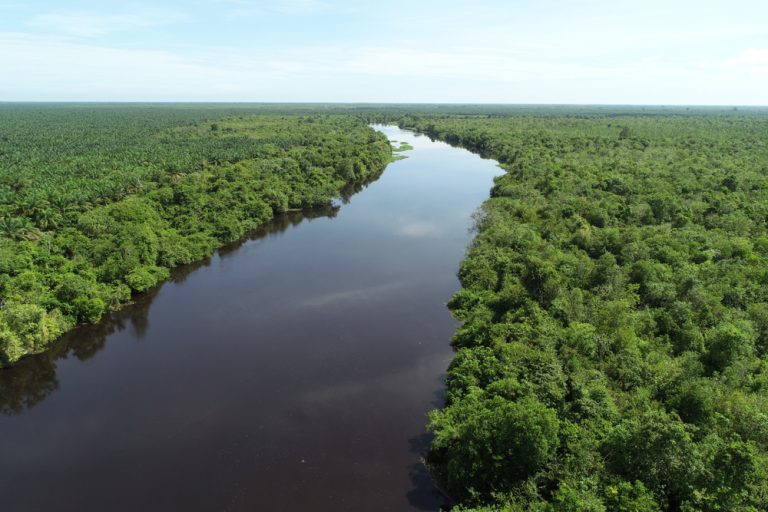Jakarta – Indonesia is committed to reduce greenhouse gas (GHG) emissions up to 41% with international support in 2030 compared to business as usual. Indonesia has also submitted the 2050 Long Term Strategy for Low Carbon and Climate Resilience (LTS-LCCR) document, officials said Monday (16/5).
“Based on the LTS-LCCR document, the peak of Indonesia’s GHG emissions is designed to occur in 2030 as much as 1,244 million tons of carbon dioxide equivalent (CO2e). Then (targeted) to decrease to 540 million CO2e in 2050 and it is projected to reach net zero emissions (NZE) in 2060,” said the Acting Director General of Forestry Planning and Environmental Management at the Ministry of Environment and Forestry (MoEF), Ruandha Agung Sugadirman in a written release.
The achievement of these targets is supported by decarbonization activities from the energy, industry, transportation, agriculture and waste and waste management sectors. Furthermore, 60% of the target will rely on the forestry and other land use (Folu) sector.
“Indonesia is committed to achieving a Folu Net Sink by 2030, which means that GHG absorption is equal to or more than emissions from the forestry sector and land use,” he added.
In the Folu Net Sink, GHG absorption from the forestry sector is targeted at 140 million tons of CO2e and then increases to 304 million tons of CO2 equivalent by 2050.
To ensure the Folu Net Sink is achieved, the Minister of Environment and Forestry Siti Nurbaya has signed the Indonesia Operational Plan for the Folu Net Sink 2030. An investment of USD 14.57 billion (IDR 204 trillion) is required to achieve the Folu Net Sink. More than half of the amount or around USD 8 billion must be mobilised by the private sector.
The financing needed will come from various conventional sources such as the state and regional budgets and private investment.
The matter was discussed during the handing over of the baton for the UNFCCC COP Presidency from the British government to Egypt at the 17th Session United Nation Forum on Forest (UNFF-17) at the UN headquarters, New York, 10 May 2022. “Climate change control cannot be done alone and is actually a multilateral process,” explained Sugadirman. (Hartatik)















